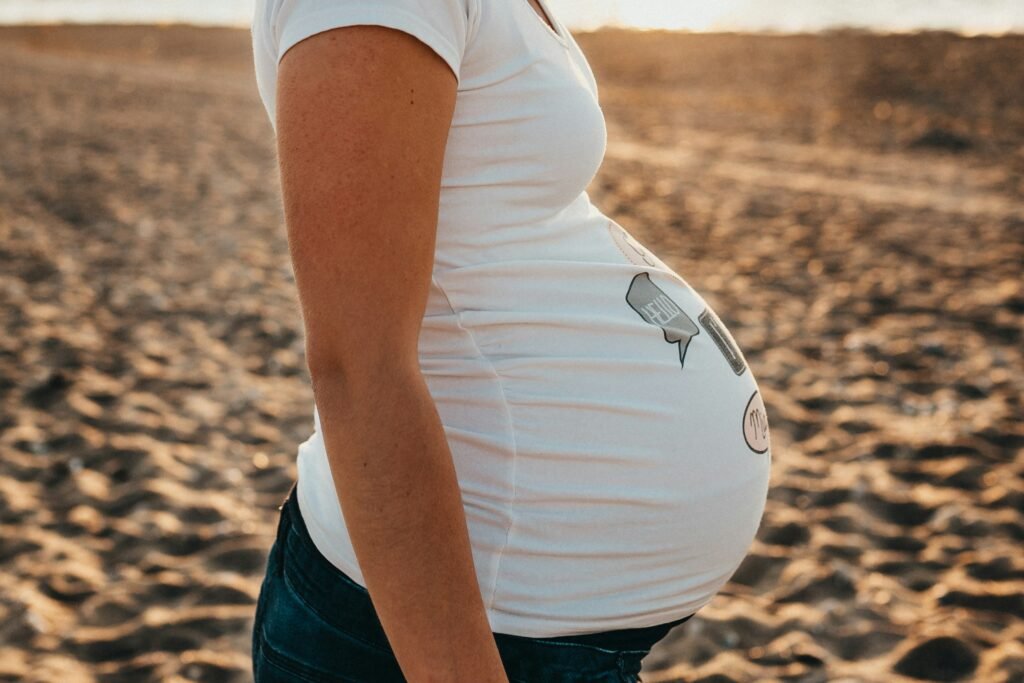Pregnancy is a unique and transformative time in a woman’s life. Staying active during this period can bring numerous benefits, including improved mood, better sleep, and reduced pregnancy discomforts. However, it’s essential to understand what kinds of exercises are safe and the guidelines for maintaining a healthy exercise routine during pregnancy. This comprehensive guide answers all your questions about exercising safely while pregnant.
Exercise During Pregnancy:
What Kind of Exercise Is Safe During Pregnancy?
During pregnancy, it’s crucial to choose exercises that are low-impact and not overly strenuous. Here are some safe exercise options:
- Walking: A simple and effective way to stay active without putting too much strain on your joints and muscles.
- Swimming: Provides a full-body workout while reducing stress on your joints. The buoyancy of the water can also alleviate pregnancy-related aches and pains.
- Prenatal Yoga: Helps improve flexibility, strength, and relaxation. It’s essential to choose classes specifically designed for pregnant women.
- Stationary Biking: Offers a cardiovascular workout without the risk of falling, which can be a concern with regular biking.
- Low-Impact Aerobics: Helps maintain cardiovascular health. Ensure that any aerobics class you attend is tailored for pregnant women.
Which Month Can I Start Exercise During Pregnancy?
You can typically start or continue exercising as soon as you find out you’re pregnant, as long as you receive approval from your healthcare provider. Many women continue their pre-pregnancy exercise routines, making adjustments as needed. The key is to listen to your body and avoid overexertion.
Is It Safe to Exercise in Early Pregnancy?
Yes, it is generally safe to exercise during early pregnancy. In fact, staying active can help manage early pregnancy symptoms such as fatigue and nausea. However, it’s essential to avoid high-risk activities and consult your healthcare provider before starting any new exercise regimen. Activities that involve a high risk of falling or abdominal trauma should be avoided.
Which Fruit Is Not Good for Pregnancy?
While most fruits are beneficial during pregnancy due to their high vitamin and nutrient content, some fruits should be consumed in moderation or avoided:
- Pineapple: Contains bromelain, which can soften the cervix and potentially lead to early labor when consumed in large amounts.
- Papaya: Especially unripe or semi-ripe papayas contain latex, which can cause uterine contractions and potentially lead to complications.
It’s always best to consult with your healthcare provider regarding your diet during pregnancy.
Things a Person Should Avoid While Pregnant
During pregnancy, there are several activities and substances that should be avoided to ensure the health and safety of both the mother and the baby:
- Alcohol: Can lead to fetal alcohol syndrome and other developmental issues.
- Smoking: Increases the risk of preterm birth, low birth weight, and other complications.
- Certain Medications: Always consult your healthcare provider before taking any medication, including over-the-counter drugs.
- High-Risk Activities: Avoid activities with a high risk of falling or injury, such as skiing, horseback riding, and contact sports.
- Hot Tubs and Saunas: High temperatures can be harmful to the developing baby.
Stop Smoking During Pregnancy: Risks and Benefits of Quitting
Quitting smoking during pregnancy is one of the best things you can do for your baby’s health. The risks of smoking while pregnant include:
- Preterm Birth: Babies born prematurely often face numerous health challenges.
- Low Birth Weight: Increases the risk of health problems and developmental delays.
- Birth Defects: Smoking can lead to defects in the baby’s heart, brain, and other organs.
The benefits of quitting smoking during pregnancy are immediate and significant:
- Improved Oxygen Supply: Quitting smoking improves oxygen delivery to the baby, promoting healthier development.
- Reduced Risk of Complications: Lower risk of preterm birth, low birth weight, and birth defects.
- Better Health for the Mother: Reduced risk of pregnancy complications such as preeclampsia.
The Dangers of Smoking During Pregnancy
Smoking during pregnancy exposes the baby to harmful chemicals such as nicotine, carbon monoxide, and tar. These substances can cross the placenta and affect the baby’s development. Potential dangers include:
- Miscarriage and Stillbirth: Increased risk of losing the baby before or shortly after birth.
- Placental Abruption: A serious condition where the placenta separates from the uterus, which can be life-threatening for both mother and baby.
- Sudden Infant Death Syndrome (SIDS): Babies born to mothers who smoke are at higher risk of SIDS.
Guidelines for Creating a Safe Exercise Routine
Creating a safe exercise routine during pregnancy involves following specific guidelines to ensure the safety of both mother and baby:
- Consult Your Healthcare Provider: Before starting any exercise routine, get approval from your healthcare provider, especially if you have any pregnancy complications.
- Warm Up and Cool Down: Start with a gentle warm-up to prepare your body for exercise and finish with a cool-down to prevent muscle stiffness.
- Stay Hydrated: Drink plenty of water before, during, and after exercise to stay hydrated.
- Avoid Overheating: Exercise in a cool environment and avoid activities that raise your core body temperature too much.
- Listen to Your Body: Pay attention to your body’s signals and avoid pushing yourself too hard. If you feel pain, dizziness, or shortness of breath, stop exercising and consult your healthcare provider.
- Modify as Needed: As your pregnancy progresses, modify your exercise routine to accommodate your changing body. Avoid exercises that involve lying flat on your back after the first trimester, as this can restrict blood flow.
- Focus on Balance: Pregnancy can affect your balance, so be cautious with exercises that require balance and coordination.
Conclusion
Exercising during pregnancy can provide numerous benefits for both the mother and the baby, from improved mood and sleep to reduced pregnancy discomforts. By choosing safe exercises, staying hydrated, and listening to your body, you can maintain a healthy and active lifestyle throughout your pregnancy. Always consult your healthcare provider before starting any new exercise routine and make adjustments as needed to ensure the safety of both you and your baby. Remember, a healthy pregnancy sets the foundation for a healthy future for your child.



